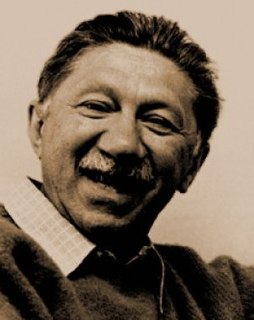Psychology is the science of behavior and mind. Psychology includes the study of conscious and unconscious phenomena, as well as feeling and thought. It is an academic discipline of immense scope. Psychologists seek an understanding of the emergent properties of brains, and all the variety of phenomena linked to those emergent properties. As a social science it aims to understand individuals and groups by establishing general principles and researching specific cases.
Positive psychology is "the scientific study of what makes life most worth living", or "the scientific study of positive human functioning and flourishing on multiple levels that include the biological, personal, relational, institutional, cultural, and global dimensions of life". Positive psychology is concerned with eudaimonia, "the good life", reflection about what holds the greatest value in life – the factors that contribute the most to a well-lived and fulfilling life.
Psychology is an academic and applied discipline involving the scientific study of human mental functions and behavior. Occasionally, in addition or opposition to employing the scientific method, it also relies on symbolic interpretation and critical analysis, although these traditions have tended to be less pronounced than in other social sciences, such as sociology. Psychologists study phenomena such as perception, cognition, emotion, personality, behavior, and interpersonal relationships. Some, especially depth psychologists, also study the unconscious mind.

Abraham Harold Maslow was an American psychologist who was best known for creating Maslow's hierarchy of needs, a theory of psychological health predicated on fulfilling innate human needs in priority, culminating in self-actualization. Maslow was a psychology professor at Alliant International University, Brandeis University, Brooklyn College, New School for Social Research, and Columbia University. He stressed the importance of focusing on the positive qualities in people, as opposed to treating them as a "bag of symptoms." A Review of General Psychology survey, published in 2002, ranked Maslow as the tenth most cited psychologist of the 20th century.
Humanistic psychology is a psychological perspective that rose to prominence in the mid-20th century in answer to the limitations of Sigmund Freud's psychoanalytic theory and B. F. Skinner's behaviorism. With its roots running from Socrates through the Renaissance, this approach emphasizes individuals' inherent drive towards self-actualization, the process of realizing and expressing one's own capabilities and creativity.
School psychology is a field that applies principles of educational psychology, developmental psychology, clinical psychology, community psychology, and applied behavior analysis to meet children's and adolescents' behavioral health and learning needs in a collaborative manner with educators and parents. School psychologists are educated in psychology, child and adolescent development, child and adolescent psychopathology, education, family and parenting practices, learning theories, and personality theories. They are knowledgeable about effective instruction and effective schools. They are trained to carry out psychological testing and psychoeducational assessment, counseling, and consultation, and in the ethical, legal and administrative codes of their profession.
Clinical psychology is an integration of science, theory, and clinical knowledge for the purpose of understanding, preventing, and relieving psychologically-based distress or dysfunction and to promote subjective well-being and personal development. Central to its practice are psychological assessment, clinical formulation, and psychotherapy, although clinical psychologists also engage in research, teaching, consultation, forensic testimony, and program development and administration. In many countries, clinical psychology is a regulated mental health profession.
Association in psychology refers to a mental connection between concepts, events, or mental states that usually stems from specific experiences. Associations are seen throughout several schools of thought in psychology including behaviorism, associationism, psychoanalysis, social psychology, and structuralism. The idea stems from Plato and Aristotle, especially with regard to the succession of memories, and it was carried on by philosophers such as John Locke, David Hume, David Hartley, and James Mill. It finds its place in modern psychology in such areas as memory, learning, and the study of neural pathways.

Martin Elias Pete Seligman is an American psychologist, educator, and author of self-help books. Seligman is a strong promoter within the scientific community of his theories of positive psychology and of well-being. His theory of learned helplessness is popular among scientific and clinical psychologists. A Review of General Psychology survey, published in 2002, ranked Seligman as the 31st most cited psychologist of the 20th century.
The implicit-association test (IAT) is a measure within social psychology designed to detect the strength of a person's automatic association between mental representations of objects (concepts) in memory. The IAT was introduced in the scientific literature in 1998 by Anthony Greenwald, Debbie McGhee, and Jordan Schwartz. The IAT is now widely used in social psychology research and, to some extent, in clinical, cognitive, and developmental psychology research. The IAT is the subject of much controversy regarding precisely what it measures, and the lack of reproducibility of many of its results.

Pitch and putt is an amateur sport very similar to golf but where the hole length is typically up to 90 metres (100 yd).
The Federation of International Pitch and Putt Associations (FIPPA) is one of the governing bodies for the pitch and putt in the world, along with the International Pitch and Putt Association (IPPA). It was created in March 2006 by the representatives of 17 national governing bodies and is based in Barcelona, Catalonia.
The Denmark men's national pitch and putt team represents Denmark in the pitch and putt international competitions. It is managed by the Dansk Pitch and Putt Union (DPPU), that was member of the European Pitch and Putt Association, and associated member of the Federation of International Pitch and Putt Associations (FIPPA).
Edward F. Diener is an American psychologist, professor, and author. Diener is a professor of psychology at the University of Utah and the University of Virginia, and Joseph R. Smiley Distinguished Professor Emeritus at the University of Illinois, as well as a senior scientist for the Gallup Organization. He is noted for his research over the past thirty years on happiness, including work on temperament and personality influences on well-being, theories of well-being, income and well-being, cultural influences on well-being, and the measurement of well-being. As shown on Google Scholar as of May 2017, Diener's publications have been cited over 145,000 times.

The International Pitch and Putt Association (IPPA) is one of the governing bodies for the sport of pitch and putt in the world, along with the Federation of International Pitch and Putt Associations (FIPPA). IPPA was founded on 2 April 2009 in Madrid and includes all organizations that develop and maintain the sport of Pitch & Putt at a national and international level. IPPA is a non profit organization based in Madrid, Spain.
Cultural differences can interact with positive psychology to create great variation, potentially impacting positive psychology interventions. Culture influences how people seek psychological help, their definitions of social structure, and coping strategies.

Optimism is a mental attitude reflecting a belief or hope that the outcome of some specific endeavor, or outcomes in general, will be positive, favorable, and desirable. A common idiom used to illustrate optimism versus pessimism is a glass filled with water to the halfway point: an optimist is said to see the glass as half full, while a pessimist sees the glass as half empty.
Michaela Brohm-Badry is a German professor for Learning and Instruction at the University of Trier.




